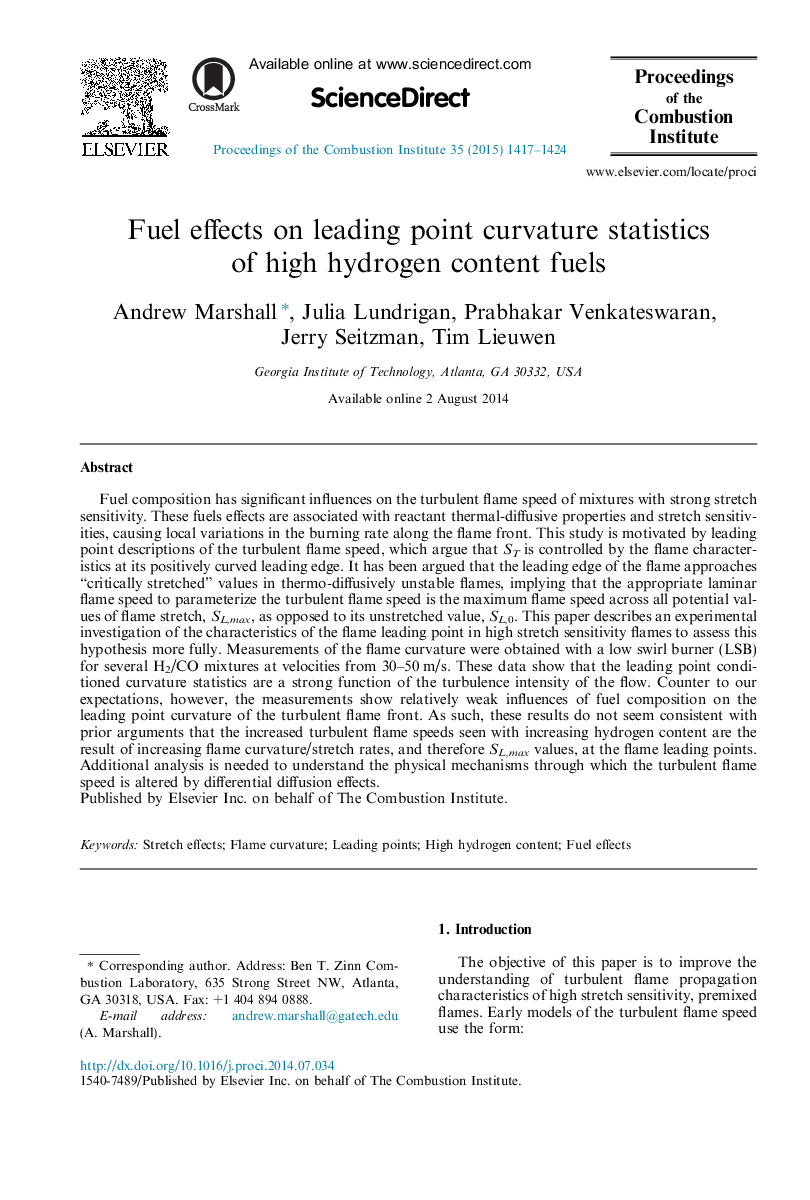| Article ID | Journal | Published Year | Pages | File Type |
|---|---|---|---|---|
| 6679234 | Proceedings of the Combustion Institute | 2015 | 8 Pages |
Abstract
Fuel composition has significant influences on the turbulent flame speed of mixtures with strong stretch sensitivity. These fuels effects are associated with reactant thermal-diffusive properties and stretch sensitivities, causing local variations in the burning rate along the flame front. This study is motivated by leading point descriptions of the turbulent flame speed, which argue that ST is controlled by the flame characteristics at its positively curved leading edge. It has been argued that the leading edge of the flame approaches “critically stretched” values in thermo-diffusively unstable flames, implying that the appropriate laminar flame speed to parameterize the turbulent flame speed is the maximum flame speed across all potential values of flame stretch, SL,max, as opposed to its unstretched value, SL,0. This paper describes an experimental investigation of the characteristics of the flame leading point in high stretch sensitivity flames to assess this hypothesis more fully. Measurements of the flame curvature were obtained with a low swirl burner (LSB) for several H2/CO mixtures at velocities from 30-50Â m/s. These data show that the leading point conditioned curvature statistics are a strong function of the turbulence intensity of the flow. Counter to our expectations, however, the measurements show relatively weak influences of fuel composition on the leading point curvature of the turbulent flame front. As such, these results do not seem consistent with prior arguments that the increased turbulent flame speeds seen with increasing hydrogen content are the result of increasing flame curvature/stretch rates, and therefore SL,max values, at the flame leading points. Additional analysis is needed to understand the physical mechanisms through which the turbulent flame speed is altered by differential diffusion effects.
Related Topics
Physical Sciences and Engineering
Chemical Engineering
Chemical Engineering (General)
Authors
Andrew Marshall, Julia Lundrigan, Prabhakar Venkateswaran, Jerry Seitzman, Tim Lieuwen,
